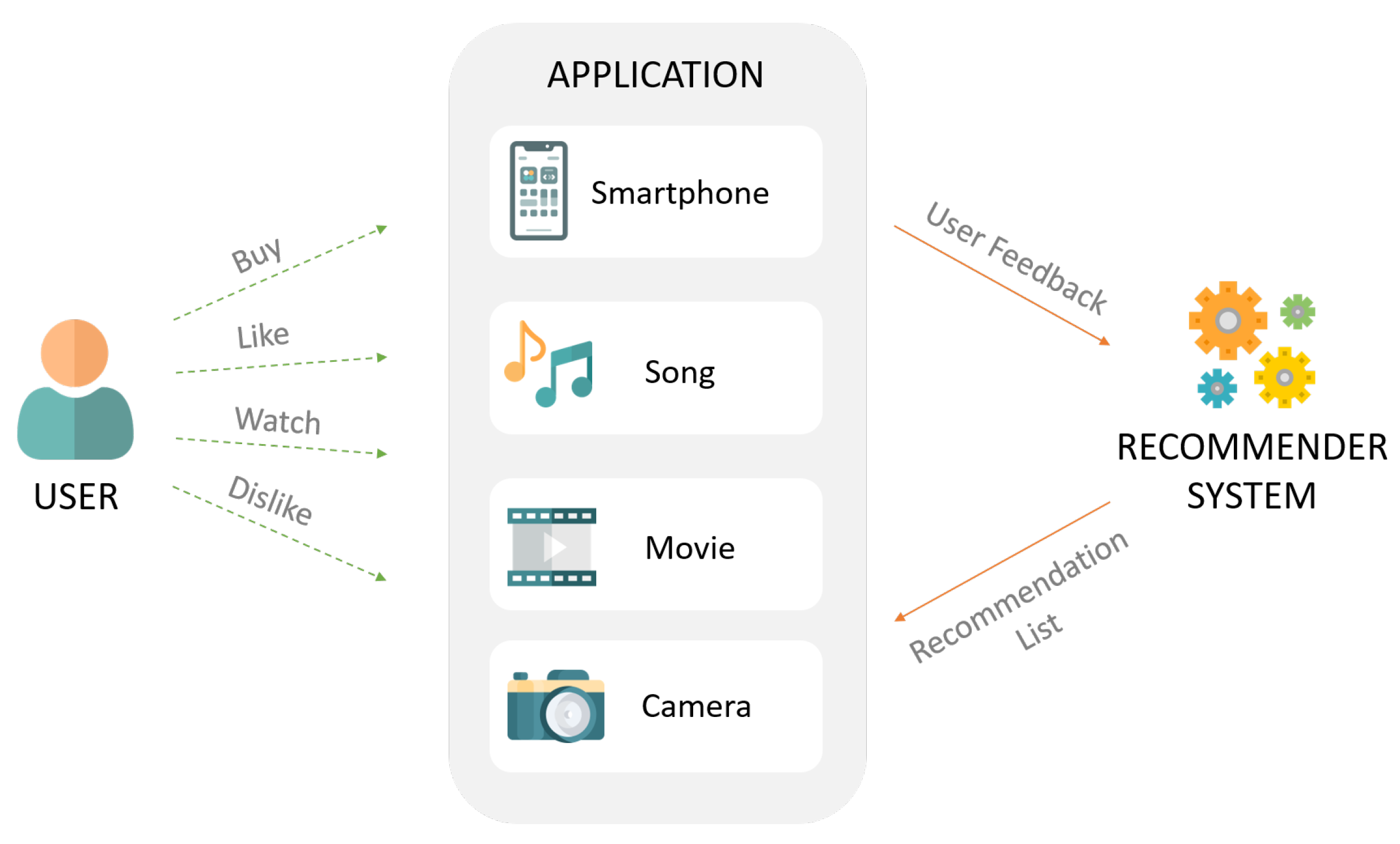Recommender Systems
A recommender system, also known as a recommendation system, is a tool that helps businesses and organizations to provide personalized recommendations to their users or customers. This is typically done by analyzing large amounts of data about the users' preferences and behaviors, and using this data to identify items or products that are likely to be of interest to each individual user.
One of the key benefits of using a recommender system is that it can help businesses and organizations to improve the user experience by providing more personalized and relevant recommendations. This can help to increase customer satisfaction and engagement, leading to increased sales and revenue.
There are several different types of recommender systems, including collaborative filtering, content-based filtering, and hybrid recommender systems. Collaborative filtering systems use data about the preferences and behaviors of a group of users to make recommendations, while content-based filtering systems use information about the characteristics of the items being recommended. Hybrid systems combine both collaborative and content-based filtering to provide even more personalized recommendations.
Another important aspect of recommender systems is the ability to handle the so-called "cold start" problem. This refers to the situation where a new user has not yet interacted with the system, and therefore there is no data available about their preferences or behaviors. In these cases, the recommender system can use information about the user's demographic characteristics or other external data sources to make initial recommendations.
The use of recommender systems has become increasingly widespread in recent years, with many companies and organizations using them to provide personalized recommendations to their users. This has led to a growing interest in the development of new algorithms and technologies that can improve the performance of recommender systems.
One of the challenges in the field of recommender systems is to balance the need for personalized recommendations with the need to protect the privacy of users. As more and more data is collected about users' preferences and behaviors, there is an increasing risk of this data being misused or mishandled. To address this, researchers and practitioners are exploring new approaches to privacy-preserving recommendation, including the use of federated learning and other techniques.
Overall, recommender systems are an important tool for businesses and organizations that want to provide personalized recommendations to their users. By analyzing data about users' preferences and behaviors, these systems can help to improve the user experience and drive increased engagement and sales. As the field continues to evolve, we can expect to see even more sophisticated and effective recommender systems in the future.
Recommender systems were first introduced in the early 1990s.
The Netflix Prize, which was a competition to improve the accuracy of Netflix's recommendation algorithm, was launched in 2006 and ended in 2009.
In 2010, Amazon introduced its "Customers who bought this item also bought" feature, which uses a recommender system to provide personalized recommendations to users.
In 2011, Spotify launched its Discover Weekly playlist, which uses a recommender system to provide users with personalized music recommendations.
In 2014, Google introduced its "People also search for" feature, which uses a recommender system to provide users with related search suggestions.
In 2018, Facebook introduced its "People You May Know" feature, which uses a recommender system to suggest new connections to users.
In 2019, Apple introduced its "For You" tab in Apple Music, which uses a recommender system to provide users with personalized music recommendations.
The use of machine learning and artificial intelligence techniques has become increasingly common in the development of recommender systems.
Researchers and practitioners are exploring new approaches to privacy-preserving recommendation, including the use of federated learning and other techniques.
The field of recommender systems is expected to continue to evolve and advance in the coming years, with new algorithms and technologies being developed to improve the accuracy and effectiveness of these systems.
Courses in computer science or information technology that cover topics such as machine learning, data mining, and artificial intelligence may include material on recommender systems.
Some universities offer specialized courses or tracks within computer science or information technology programs focused specifically on recommender systems.
There may also be courses offered by online learning platforms or professional organizations that cover the topic of recommender systems.
Some relevant study fields for understanding and working with recommender systems include machine learning, data mining, artificial intelligence, and computer science.





Comments
Post a Comment
If you have any doubts. Please let me know.